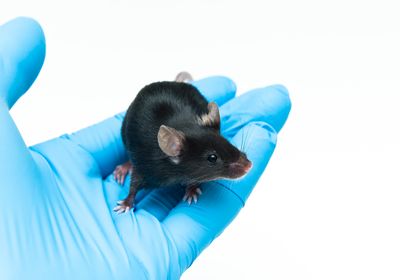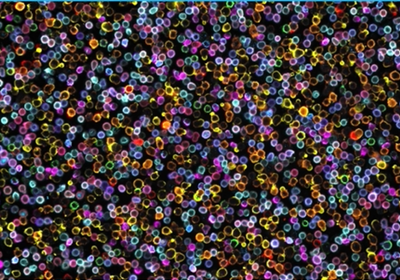ABOVE: © ISTOCK.COM, UNOL
Old age is plagued with health complaints, from aches and pains to heart and neurodegenerative diseases. Some scientists have postulated that interfering with aging at the cellular level could delay or even prevent many of these ailments, which has led to an explosion of research on anti-aging.
Now, researchers from Peking University in China claim that human coilin-interacting nuclear ATPase protein (hCINAP) can do exactly that: prevent cellular senescence and, potentially, delay aging. Overexpressing the protein in worm models delayed cellular senescence—a period characterized by the absence of growth in cells—and depleting it increased senescence in human and mouse cell lines, they report March 6 in Journal of Molecular Cell Biology.
James Kirkland, a physician-scientist at Mayo Clinic in Minnesota who carries out clinical trials on drugs that target fundamental aging processes, says that the findings are a very valuable addition to what is already known about senescent cells. However, he and others express doubt that they’ll lead to a “cure” for aging. Cellular senescence is a popular target for anti-aging research as it has been linked to several age-related diseases, including cancer. For instance, a 2001 study showed that senescent cells in aged organisms stimulate the growth and proliferation of cancerous tumors. And even in young organisms, senescent cells can induce systemic defects by secreting substances that affect the integrity of the surrounding tissues.
In the new study, researchers were searching for a way to delay senescence. The team had previously conducted studies on hCINAP, finding that depleting it can stunt worm growth, so they decided to investigate how the protein affects senescence. First, they knocked out the protein from a group of worms and then compared the result with a control group. The lifespan of the protein-deficient worms was shorter and that the animals were smaller than the control group, they found, which is an indication that hCINAP decreases during cellular senescence, the team writes in the paper.
If you take away the ability to form senescence cells, you can slow down certain age-related diseases, but you give cancers a selective advantage.—James Kirkland, Mayo Clinic
To determine how this happened on a cellular level, they depleted hCINAP in human and mouse cell lines, and then they identified and quantified the levels of P53 and P16—senescent biomarkers. They found that the levels of P53 and P16 significantly increased compared to the control group. And when hCINAP was overexpressed in human cell lines, the level of p53 and p16 reduced significantly. Further tests showed that hCINAP caused the reduction of P53 and P16 because it promoted the degradation of P53 in the cells suggesting that hCINAP affects senescence negatively.
The researchers knew from previous studies that cellular senescence speeds up aging through the activity of p53. Having discovered that hCINAP regulates p53, they decided to check if hCINAP affected aging through this pathway. To investigate this they first created a mouse model that lacked mCINAP—m denotes the mouse protein—in the skeletal muscle and liver, and then exposed 3-month-old mice to radiation. They collected tissue samples from the mice for analysis one, two, three, six, and nine months after radiation. The researchers write that “all mice that underwent irradiation developed an abnormal body appearance, such as grey hair, which was markedly aggravated by mCINAP depletion in the skeletal muscle/liver.” They also found that senescent biomarkers increased significantly with age in the mCINAP-depleted mouse compared to controls and that mice with hCINAP depleted from their skeletal muscles experienced a decreased lifespan.
Combined, these findings outline a pathway of cellular senescence that could be mitigated to delay aging, the authors write, but other experts find this claim problematic.
Kirkland worries that shutting down cellular senescence would lead to the proliferation of cancerous cells. “If you take away the ability to form senescence cells, you can slow down certain age-related diseases, but you give cancers a selective advantage,” he says. That is because cellular senescence is also a tumor-suppressive process in that it hinders the progression and proliferation of cancerous cells. He notes that beyond cancer development, preventing cellular senescence could affect body functions such as pregnancy. A 2017 study found that substances secreted by senescent cells in women aid proper embryo implantation and prepare the mother and the baby for delivery.
Michael Petrascheck, who researches the molecular connection between aging and age-related diseases at the Scripps Research Institute in California, says that while the researchers have discovered a mechanism to keep senescence in check using wild-type organisms, it is not clear if overexpressing hCINAP can truly increase lifespan.
Even if it can, Kirkland says increasing lifespan should come second to improving healthspan. “Increasing lifespan at all costs and having people who are 120 years old and feeling like 120 years old would, arguably, not be as desirable as being able to help people get to the age of 100, do extremely well, and then just not wake up one morning.”






